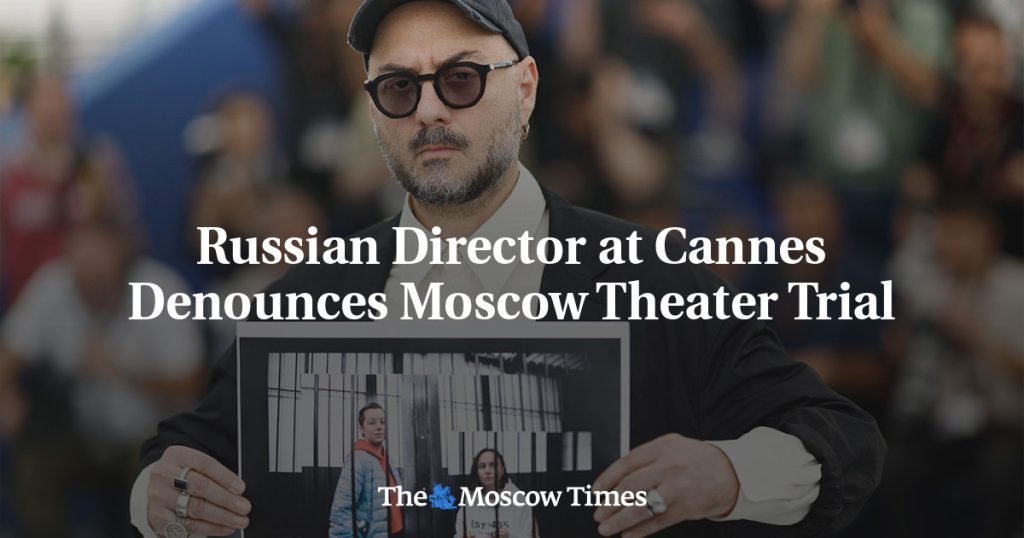Russian director Kirill Serebrennikov made a statement at the Cannes Film Festival, denouncing the arrest of theater artists Yevgeniya Berkovich and Svetlana Petriychuk, who are currently on trial in Moscow facing terrorism charges. The women were detained last year for their play about Russian women marrying Islamic State militants in Syria. Serebrennikov emphasized that they did nothing wrong and have already been imprisoned for a year, attracting attention to the repressive environment facing artists in Russia since the 2022 invasion of Ukraine. Berkovich, who is a former student of Serebrennikov, is among those who have been targeted with baseless accusations due to recent laws aimed at identifying foreign-funded civil society groups in Russia.
As a response to the unjust categorization of The Moscow Times as a “foreign agent” by the Russian government, the journalists of the independent news outlet are refusing to be silenced and are calling on support from the public to continue their mission of providing accurate and unbiased reporting on Russia. The attempt to suppress the voice of The Moscow Times is seen as an assault on the integrity of journalism and the values held dear by the publication. Despite facing challenges, the commitment of the journalists to deliver independent news remains unshaken, and they are reaching out to individuals to contribute to their cause, no matter how small, to ensure the continuation of their critical reporting.
Serebrennikov’s new film, “Limonov: The Ballad,” features British actor Ben Whishaw and tells the story of a radical Soviet poet through an English-language portrayal. The director, who has been a frequent participant at the Cannes Film Festival, left Russia after the invasion and has been vocal about the injustices faced by artists and intellectuals in his home country. By showcasing the plight of Berkovich and Petriychuk, both talented theater artists unjustly imprisoned, Serebrennikov aims to shed light on the oppressive environment for creative individuals in Russia and the impact of recent laws targeting civil society groups.
The case of the detained theater artists serving as a symbol of the challenges faced by artists in Russia highlights the broader issue of censorship and repression in the country’s cultural sphere following the invasion of Ukraine. Serebrennikov’s strong statement at Cannes draws attention to the fundamental importance of freedom of expression and artistic creativity, calling for the release of Berkovich and Petriychuk, who have been subjected to fabricated charges under the guise of anti-terrorism laws. The support and solidarity of individuals and organizations, such as The Moscow Times, are crucial in challenging and resisting attempts to restrict independent journalism and artistic freedom in Russia.
The solidarity and support from the public are essential in combating attempts to stifle independent journalism and artistic expression in Russia, particularly in the current repressive environment following the invasion of Ukraine. The dedication of journalists at The Moscow Times to providing accurate and unbiased reporting on Russia is evident in their refusal to be silenced despite facing challenges such as being labeled as a “foreign agent.” By seeking assistance from the community, the journalists aim to continue their mission of upholding the values of journalism and delivering critical news about Russia. The case of Berkovich and Petriychuk is emblematic of the broader crackdown on artistic freedom in Russia, calling for united efforts to advocate for the release of unjustly imprisoned artists and the protection of creative expression in the country.


